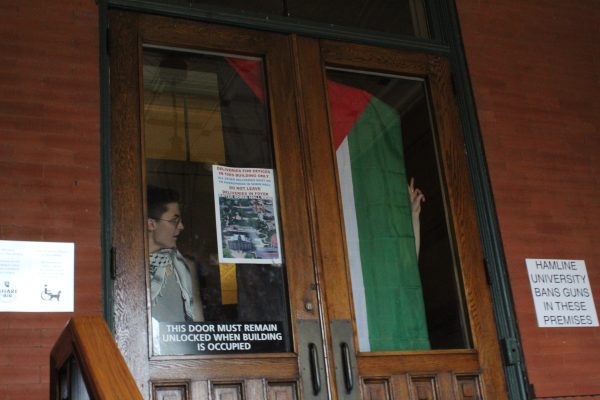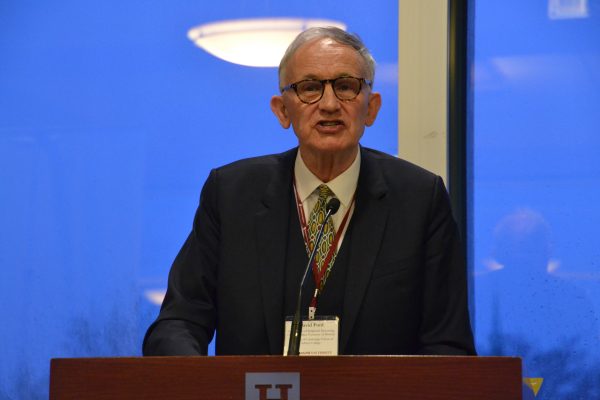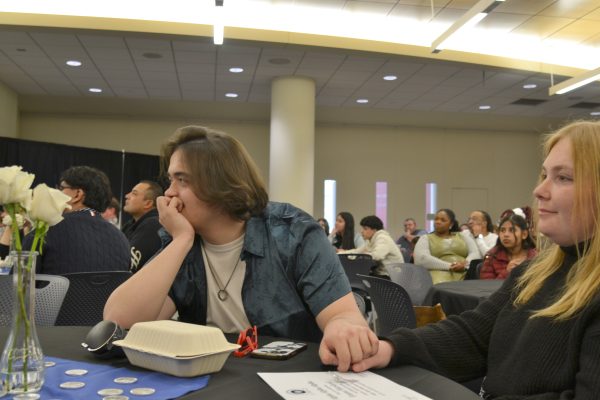A different type of citizenship
Dr. Peter L. Levine speaks at the Commitment to Community keynote address.
Dr. Peter L. Levine teaches the faculty, staff, and students about the value of collaboration when trying to create a social movement in today’s society.
October 7, 2015
The annual Commitment to Community Keynote Address was given by Dr. Peter L Levine. The focus this year was to engage in conversations about diversity and how to promote positive social change. Accordingly, Dr. Levine spoke to a crowded Hamline Church where he stated that a good citizenship will bring about social change. He challenged everyone to look at issues through a lens of “What should we do?” versus “What should be done?” This allows citizens to look at problems more thoughtfully and in depth rather than missing key elements.
The key components to be a good citizen, as described by Dr. Levine consist of deliberation, collaboration, and creating civil relationships. The process of deliberation entails talking and listening to a variety of people and groups who differ from yourself over a lifetime. Collaboration takes the process a step further and requires you to take action by doing and reflecting. This progression allows you to build a foundation for Civic Relationships. Civil relationships can be defined as an interaction and common engagement to address a variety of current topics between people. All three of these elements exhibit the fact that “moral thought is social.”
Dr. Levine honed in on the idea that making positive actions by following up and engaging others is the route to social justice. Dr. Levine is challenging leaders of all kinds to step up and be the organizers and innovators of change. There is an estimated one million citizens that are working to collaborate, educate, organize and reform for equality in attempt to bring back the democracy. Dr. Levine also urges everyone who is not involved with their school or community to get involved and get together with other people who agree or have the same ideals as them to form a plan, since it is essential to “get involved, get connected.”






